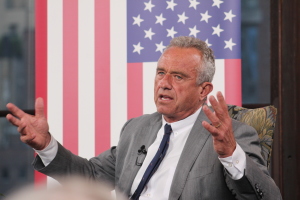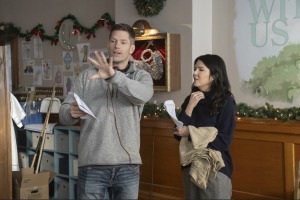Churches Flex Muscles for Hurricanes
America’s denominations flexed their muscles in the aftermath of Katrina, providing funds, food, shelter, counseling and prayer for the afflicted.
America’s denominations flexed their muscles in the aftermath of Katrina, providing funds, food, shelter, counseling and prayer for the afflicted. And while the less-devastating Hurricane Rita will likely draw a smaller response, churches are still calling on its members to give liberally, serve generously, and pray diligently.
The category 3 storm Rita surged through Texas and Louisiana Saturday, downing power lines and trees, sparking fires, and flooding thousands of homes. However, despite the damage, federal and local emergency management workers breathed a sigh of relief that the devastation was far less severe than that caused by Katrina.
"There's none of that just-down-to-the-foundation devastation that we saw out of Mississippi after Katrina,” said Texas Gov. Rick Perry on Saturday.
According to the Associated Press, only one death had been reported by Saturday night, compared to the death toll of more than 1,000 for Katrina.
"The damage is not as serious as we had expected it to be," R. David Paulison, acting director of the Federal Emergency Management Agency, told AP. "The evacuations worked."
Despite the less-than-expected damages, Christian leaders urged their members to continue giving in this fragile situation.
“We have responded to the immediate needs of Hurricane Katrina,” said Rev. Bob Edgar, General Secretary of the National Council of Churches U.S.A, on Friday. “We will respond with generosity and love and compassion to the impact of Rita.”
The United Methodist Church also released a panoply of resources on Friday to help its members “Be the Hope” for those affected by Hurricanes Katrina and Rita.
The church offers “a community of support, safety and security when catastrophes disrupt the lives of individuals in affected areas,” said the Rev. Larry Hollon, chief executive officer of UMCom. Those who volunteer to assist survivors “personify that hope and concern of the larger community.”
“If you contribute to the United Methodist Committee on Relief for long-term relief, if you put together flood buckets or hygiene kits, if you join in prayer for those who are affected, if you volunteer to help in cleanup or operate a shelter, or encourage friends or the place where you work to make a financial contribution, you are being a concrete manifestation of hope,” he said, according to the United Methodist News Service.
Resources include worship materials, counseling tips, prayers, web tools, and bulletin inserts.
The Evangelical Lutheran Church in America, the Christian Reformed Church, the Presbyterian Church USA and the World Evangelical Alliance also released helpful reflections on the hurricanes that churches can use for counseling and response.
One resource, provided by the Evangelical Lutheran Church in America, is a radio clip titled, “God, We Need to Talk.” The program features the Rev. Peter Marty, who talks about making sense of how God’s will goes to work in times of devastation. The entire 25 minute program is available to stream on the ELCA’s website: (http://www.elca.org/disaster/resources/05-09-01-katrinaprayer.asp)
To give to the United Methodist Church, visit: www.methodistrelief.org
To give to the Evangelical Lutheran Church in America, visit: http://www.elca.org/disaster/giving/
To give to the Presbyterian Church USA, visit: http://www.pcusa.org/katrina/
To give to the Christian Reformed Church, visit: http://www.crwrc.org/relief/na/Katrina.html




























